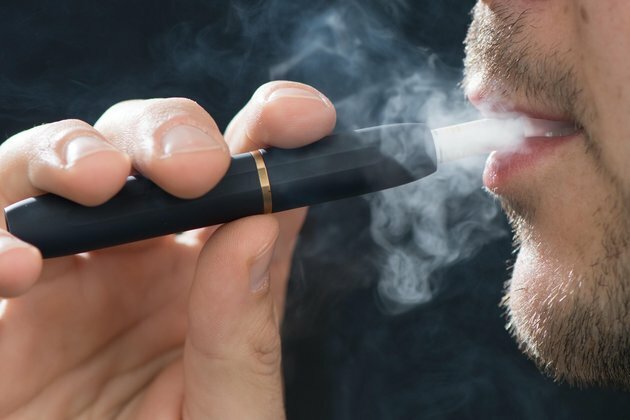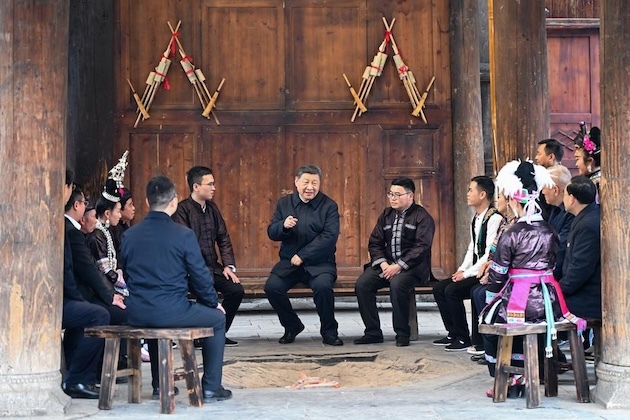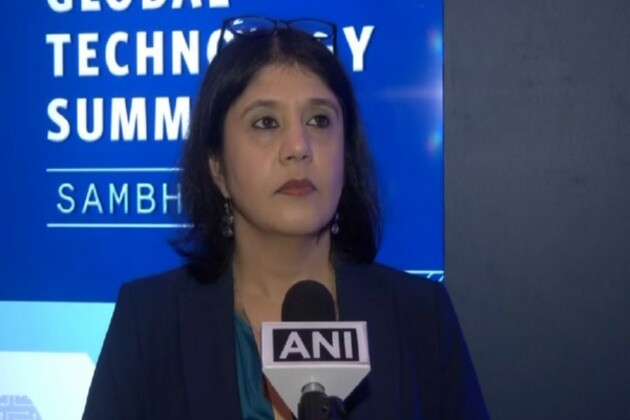Heated tobacco: a new review looks at the risks and benefits
The Conversation
06 Jan 2022, 18:10 GMT+10

Heated tobacco products are designed to heat tobacco without burning it or producing smoke. The popularity of these products soared in Japan after the release of an electronic device called IQOS in 2016. Heated tobacco products are now available in many countries, but questions remained about their effect on cigarette smoking and health, so we set out to review the evidence.
Our new review covers data from 11 studies with over 2,600 people. The headline finding is that people who switched from cigarettes to heated tobacco had lower levels of exposure to harmful chemicals than those who kept smoking, but higher levels of these toxins than those who stopped using tobacco altogether.
This lower exposure was found across a number of harmful substances linked to cancers, heart disease and respiratory problems. This means it is possible that switching from cigarettes to heated tobacco could reduce the odds of developing these diseases, but we don't have enough data yet to be sure. The studies were all of short duration, and it typically takes a while for people to develop tobacco-related diseases.
That said, the evidence so far is consistent with how uniquely dangerous smoking is. We know that most of the harmful effects of cigarettes - which kill half of all regular smokers - come from inhaling toxic chemicals made by burning tobacco. As heated tobacco products are designed to avoid burning tobacco, we'd expect them to pose a lower risk.
Heated tobacco products could benefit public health if they reduce risk and help people stop smoking normal cigarettes, without attracting people who would otherwise avoid tobacco entirely.
We didn't find any studies looking at whether giving smokers heated tobacco products helped them stop smoking. But we found two Japanese studies looking at how cigarette sales changed after IQOS entered the market. Both found that falls in cigarette sales sped up after the IQOS launch, suggesting that heated tobacco products might replace rather than complement cigarettes.
On the other hand, it is possible that sales of cigarettes fell because most people cut down without stopping altogether. The greatest improvements in health come from stopping smoking altogether rather than smoking fewer cigarettes.
How they compare with e-cigarettes
E-cigarettes, or vapes, are another group of nicotine products that have become very popular in recent years. Heated tobacco products heat tobacco leaf, whereas e-cigarettes heat a liquid, typically containing nicotine. There are large differences in the science and regulation of these products. E-cigarettes have been on the market for longer than heated tobacco, so we have more evidence about their benefits and harms.
Unlike heated tobacco, e-cigarettes have been shown to help people stop smoking normal cigarettes. In the not-too-distant future, the UK may even offer e-cigarettes to those who wish to quit smoking, as long as the products pass the necessary regulatory hurdles.
Yet some countries, including Japan, have imposed restrictions that have essentially banned the sale of nicotine e-cigarettes, while heated tobacco products remain widely available. This may explain why heated tobacco has taken off in Japan; it's the only potentially lower-risk alternative to cigarettes available. Heated tobacco use remains rare in countries like the UK and US, where the e-cigarette market was already well-established by the time IQOS launched.
The heated tobacco market is dominated by products from the cigarette industry, which has historically acted to distort science into the harm of cigarettes. Conversely, many e-cigarette manufacturers are unaffiliated with cigarette companies. All safety studies in our review of heated tobacco were conducted by cigarette manufacturers, whereas there are many independent studies of e-cigarettes.
The search for a less harmful cigarette
Tobacco companies have claimed to be searching for decades for a less harmful cigarette. Some attempts, including adding ventilation holes to cigarette filters, have caused more harm.
The e-cigarette was the first non-medical nicotine alternative to cigarettes that appealed widely to smokers around the globe. But e-cigarettes don't contain tobacco and many manufacturers are unconnected to cigarette companies. Many tobacco companies instead focused on developing heated tobacco devices, a market over which they could maintain greater control through patents.
In 2014, with the introduction of IQOS to test markets by Philip Morris International, sales increased quickly in Japan and South Korea, and other tobacco companies introduced their own electronic heated tobacco devices. Some of the most popular today are glo by British American Tobacco and Ploom by Japan Tobacco International.
Much of the research into the safety of heated tobacco comes from Philip Morris International, which applied for IQOS to be sold as a "reduced exposure" and "reduced risk" tobacco product in the US. In 2019, the US allowed IQOS to be marketed as a reduced exposure product. Their review concluded that "switching completely from conventional cigarettes to the IQOS system significantly reduces your body's exposure to harmful or potentially harmful chemicals".
The reduced risk application failed, because "the evidence is not sufficient to demonstrate substantiation of either of the claims about the reduced risk of tobacco-related disease or harm". We need more evidence to be sure about how using heated tobacco affects people's health.
Authors: Harry Tattan-Birch - PhD Candidate, Behavioural Science and Health, UCL | Jamie Brown - Professor, Behavioural Science and Health, UCL | Jamie Hartmann-Boyce - Associate Professor and Director of Evidence-Based Healthcare DPhil Programme, University of Oxford 
 Share
Share
 Tweet
Tweet
 Share
Share
 Flip
Flip
 Email
Email
Watch latest videos
Subscribe and Follow
Get a daily dose of Japan Herald news through our daily email, its complimentary and keeps you fully up to date with world and business news as well.
News RELEASES
Publish news of your business, community or sports group, personnel appointments, major event and more by submitting a news release to Japan Herald.
More InformationAsia Pacific
SectionXi Jinping begins meetings with Community Party members
BEIJING, China -- The Communist Party of China has launched a four-month campaign to urge its around 100 million members to bolster...
Japan’s auto industry at risk from new US tariffs, says UN agency
GENEVA, Switzerland: Japan's car industry is facing a multibillion-dollar blow as sweeping U.S. auto tariffs threaten its largest export...
Mukunda Saikia Borbayan to showcase 500-Year-old Satriya Nritya at World Expo 2025 in Japan
Majuli (Assam) [India], April 13 (ANI): In a proud moment for Assam and the rich cultural heritage of India, Mukunda Saikia Borbayan,...
India to be carefully watching developments in US-China trade war, says foreign policy expert
New Delhi [India], April 13 (ANI): As the US and China engage in a tariff war, Tanvi Madan, Senior Fellow at the Brookings Institution,...
India, EU to negotiate FTA by year-end, says German envoy Ackermann
New Delhi [India], April 13 (ANI): German Ambassador to India and Bhutan, Philipp Ackermann, has said that India and European Union...
US exempts Chinese computers, phones from tariffs
WASHINGTON, 12th April, 2025 (WAM) -- The United States announced on Saturday the exemption of computers and mobile phones imported...
Business
SectionUniversal plans major theme park north of London
LONDON, UK: Universal is setting its sights on Britain as the next destination for its global theme park expansion, marking a major...
Tesla enters Saudi market amid EV push and lingering tensions
RIYADH/DUBAI: Tesla entered the Saudi Arabian market this week, taking on a country with ambitious electric vehicle goals but limited...
Wall Street volatile as Trump leads world on path to GFC II
NEW YORK, New York - U.S, and global financial markets were in crisis Friday as China increased its tariffs on the U.S. to 125 percent,...
Airbus teams up with Amazon to boost in-flight connectivity
HAMBURG, Germany: Airbus is looking to expand in-flight connectivity options through a new satellite partnership with Amazon, as the...
Thailand shifts trade strategy amid steep US tariffs
BANGKOK, Thailand: Thailand is adjusting its trade strategy in response to unexpectedly steep U.S. tariffs, moving to soften the economic...
U.S. stock markets slide resumes, major indices tumble
NEW YORK, New York - U.S. stocks fell sharply Thursday, wiping out much of the gains that came in the relief rally a day earlier after...












